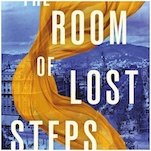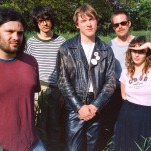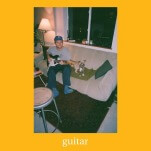Road Music, Day 14: Austin, Texas (Part 3)
For this series, we’ll be following Geoffrey Himes as he sets out on a massive road trip across the South, exploring musical landmarks, traditions and history along the way. In this installment, he visits Austin, Texas. (You can check out part two of his stay in Austin here.)
To understand why Texas is such fertile ground for smart, rootsy songwriting, you have to look beyond the annual South by Southwest Music Conference, beyond the nightclubs that have earned Austin the bumper sticker slogan “Live Music Capital of the World,” and peek into people’s houses where the gestation of those songs takes place.
On the Monday night of the SXSW week, I found myself in Lisa Fancher’s living room near the University of Texas campus. Fancher, a former Kerrville Festival New Folk finalist, is now a lawyer and part-time musician but no less passionate or skilled at songwriting for all that. In the high-ceilinged, big-windowed addition to her small ranch house, 10 Texan singer/songwriters plus a pair of out-of-town guests sat in a circle.
Within the circle were a mandolin, bouzouki, accordion, electric piano, upright bass and half a dozen acoustic guitars to be grabbed by anyone so inspired. In the kitchen was a potluck collection of wine, juice, beer, cheese, crackers, pineapple, grapes and mixed nuts.
All the musicians assembled were public performers; most of them have released albums, but none were especially famous. That lack of celebrity made the seriousness and the quality of their craft all the more impressive.
-

-

-

-

-

-

-

-

-

-

-

-

-

-

-

-

-

-

-

-

-

-

-

-

-

-

-

-

-

-

-

-

-

-

-

-

-

-

-

-








































